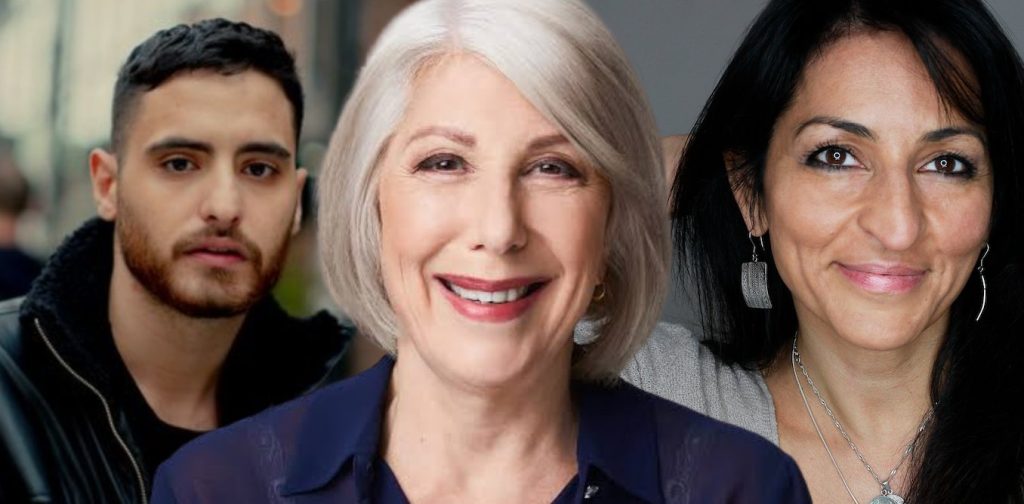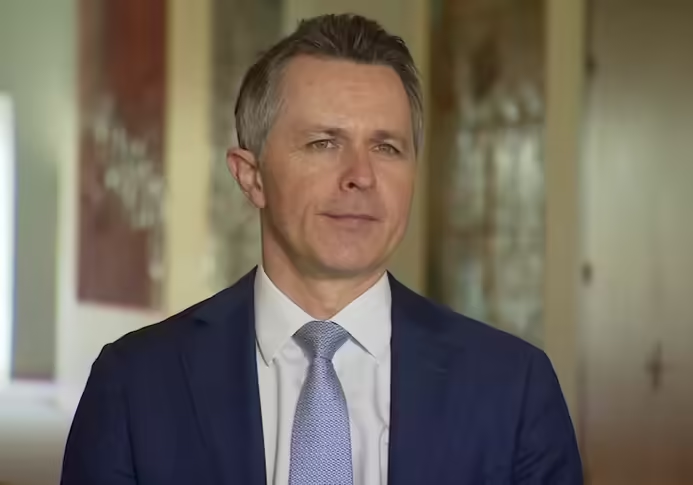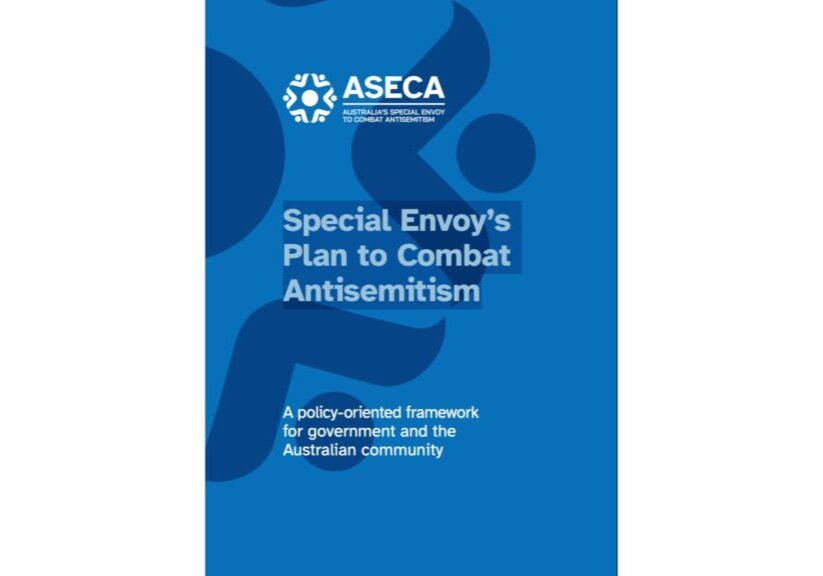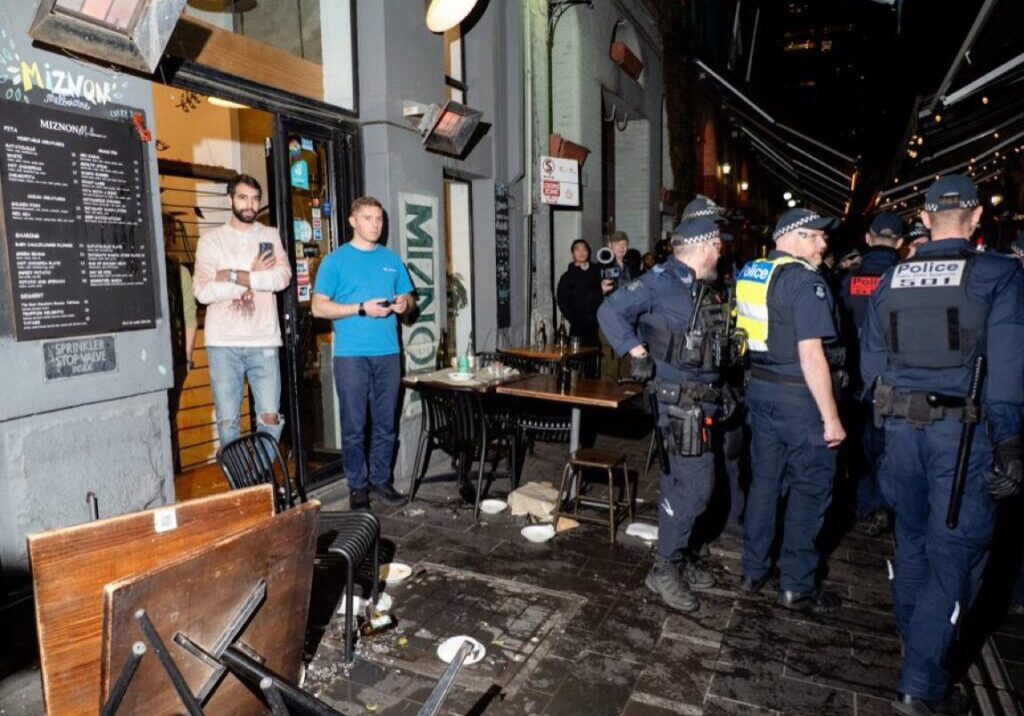Australia/Israel Review
Editorial: Writers’ wrongs
Feb 24, 2023 | Colin Rubenstein

The way organisers of the partly taxpayer-funded Adelaide Writers’ Week have been defending extremist invitees, such as Palestinian author Susan Abulhawa – in spite of her record of vile hate speech against Jews and Israelis – represents a teachable moment.
It offers a prime example of the way antisemitism is excused and even defended in “woke” progressive culture, as long as it is conflated with criticism of Israel – especially if the offender is Palestinian.
Abulhawa, who is being flown in to participate in three sessions during the event in early March, has form. She keeps a picture above her desk of Palestinian terrorist Dalal Mughrabi – one of the perpetrators of the infamous 1978 Coastal Road Massacre, which saw the slaughter of 38 Israeli civilians – and has made social media posts both calling Israelis “worse than Nazis” and asserting that “It’s possible to be Jewish and a Nazi at the same time. It’s called Israel,” while implying all Israelis are legitimate targets for violence.
Let us not forget that Israel is home to approximately half of the world’s Jewish population. One reason such Nazi analogies, no matter how ludicrous, are deployed in relation to Israel, is because they are particularly hurtful to Jews – who lost almost half their worldwide population to Nazism. This is why the widely accepted International Holocaust Remembrance Alliance (IHRA) working definition of antisemitism views equating Israelis with Nazis as, prima facie, raising questions about antisemitic motives.
When pressed in an interview with Radio Adelaide to defend the decision to invite Abulhawa – who also backs Russia in its war against what she calls a “depraved Zionist”-led Ukraine – Writers’ Week Director Louise Adler said, “our business is to operate not a safe space, but an open space in which ideas that might be confronting, disturbing, provocative are debated with civility.”
However, this isn’t actually true. According to Adler’s own words posted in an open letter on the Writers’ Week home page, this year’s event actually seeks to shut down debate on unspecified issues.
“The thread [of Writers’ Week],” Adler wrote, “is the notion of truth – truths we acknowledge, truths we feel are debatable and those beyond debate.”
In this year’s festival, at least ten writers listed as Palestinians are on the program – plus the Egyptian-born founder of the Palestine Festival of Literature, and several other virulent anti-Israel activists. No Jewish Israeli writers were invited, nor, to our knowledge, any author who has defended Israel in their writing or has the expertise to offer attendees anything counter to the Palestinian narrative. It would appear that the Palestinian narrative counts as something “beyond debate” to the organisers.
One revealing panel with a prime-time slot on the opening weekend is titled “Authors Take Sides [in warfare]” and brings together five writers whose views seem to intersect on one topic alone – siding with the Palestinians in their conflict with Israel. These include panel chair Sophie McNeill, who has accused Israel of practising “apartheid”; three Palestinians whose careers have focussed heavily on the production of anti-Israel screeds – Randa Abdel-Fattah, Ramzy Baroud and Mohammed El-Kurd – and, oddly, Jewish bio-ethicist Peter Singer, who has signed some anti-Zionist petitions but whose actual body of work has nothing to do directly with the session’s topic.
Day four of the event marks the zenith of the festival’s Palestine-a-thon. On that day, Palestinian ‘truth-tellers’ get top or exclusive billing in four consecutive sessions, spanning five hours. This starts with “Literary Worlds” – which invites festival attendees to “Explore the power of literature to reimagine what has been distorted in the real world. Nowhere is this distortion more apparent than in relation to Palestine. Can literature reveal what has been suppressed to narrate the history of dispossession endured by generations of Palestinians?” – and ends with the session “Writing from Stolen Lands.”
And while Abulhawa has drawn the most criticism ahead of the event, she is not alone among the Palestinian invitees to have engaged in hate speech. Case in point; in April 2020, at the start of the pandemic, Baroud accused “racist Israelis” of “deliberately trying to infect Palestinians with… Covid-19.” Meanwhile, El-Kurd has evoked antisemitic tropes, accusing Zionists of having “an unquenchable thirst for Palestinian blood,” among other ugly smears.
Am I saying Palestinian authors don’t deserve a place in Writers’ Week and similar events? Of course not. They do, along with Israelis and writers from around the world. However, a line must be drawn that excludes people from any background who engage in hate speech – with no exceptions based on sympathy for a particular cause.
Yet in the “woke” left it is increasingly argued that haters like Abulhawa deserve a pass just because they mainly hate Israel, and use the words “Israelis” or “Zionists”, not “Jews”, when spreading timeless slurs.
The litmus test should be whether their speech would be acceptable if it was framed against any other people besides Jews and Israelis. Indeed, under existing laws and guidelines, people like Abulhawa, Baroud and El-Kurd would struggle to meet the “good character” standards for being granted entry visas to Australia in the first place – and that law should apply to Palestinian activist writers in the same way as to anyone else.
Using taxpayer funds to bring such people here only makes the situation even more outrageous.
This year’s Adelaide Writers’ Week deserves to be called out for what it is – at least regarding the highly polarising and contentious issue of Israel and Palestine. Namely, a source of unadulterated, one-sided propaganda that can only serve to misinform people, breed hatred, and undermine support in Australia for a genuine negotiated two-state resolution of the conflict between Palestinians and Israelis.
Unwavering Palestinian rejectionism and, frequently, antisemitic hate, are the main reasons such a resolution has not yet been advanced. The Adelaide Writers’ Week festival seems to have deliberately sought to amplify these destructive forces with taxpayer funds – and that is the real “truth”.






